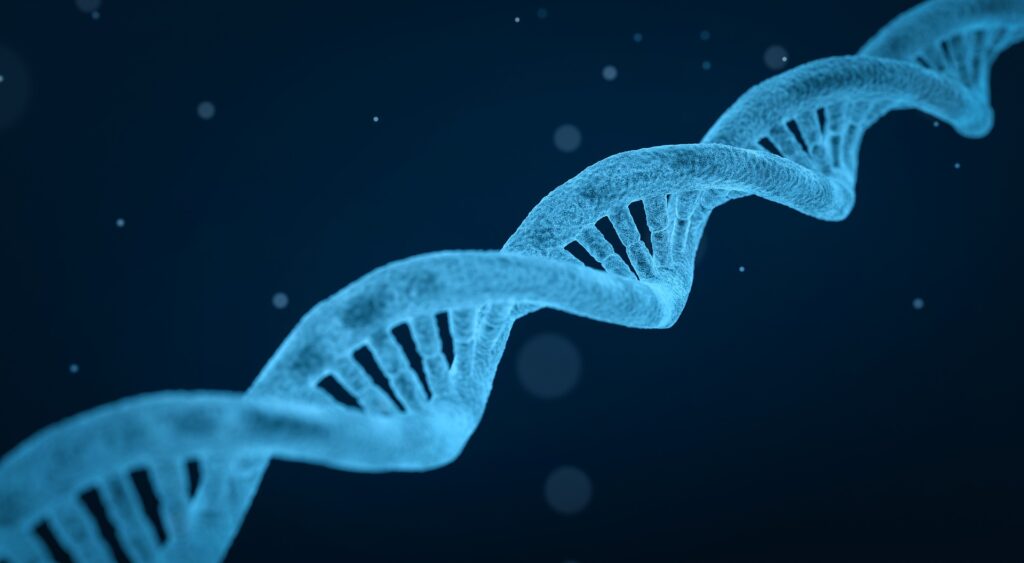Of Silk and DNA Strands
At the publishing company where I work, we get a journal called Science News. An article talked about the strength of silk, like that spun by spiders or silkworms. It told of a physician in the Wild West who documented cases of people who had survived bullet wounds because a silk handkerchief tied about the neck or stuffed into the breast pocket had prevented a bullet from penetrating vital arteries.
Ounce for ounce, silk is stronger than steel, yet lighter than cotton and finer than human hair. Nature or evolution, scientists say, has wrought a substance so suitably adapted for its work. . . . When scientists refer to Nature what are they referring to–simply a process, or a higher being with purposeful intent?
Of Silk and DNA Strands
At the publishing company where I work, we get a journal called Science News. Each week, I look forward to reading this pithy summary of the latest scientific findings. An article in the latest issue (March 9, 1996) talked about the strength of silk, like that spun by spiders or silkworms.
It told of a physician in the Wild West who documented cases of people who had survived bullet wounds because a silk handkerchief tied about the neck or stuffed into the breast pocket had prevented a bullet from penetrating vital arteries. The article then described how scientists were trying to emulate the natural structure of silk in order to create a comparable synthetic fiber. One of its uses could be to make stronger bulletproof vests. (Currently, they are made out of the strongest synthetic fiber, Kevlar.)
Ounce for ounce, silk is stronger than steel, yet lighter than cotton and finer than human hair. Nature or evolution, scientists say, has wrought a substance so suitably adapted for its work.
I enjoy reading scientists’ accounts of their observations about the natural world, whether they believe in God or not, because they reinforce my belief that the beauty and wonders of nature are due to Him. When scientists refer to Nature what are they referring to–simply a process, or a higher being with purposeful intent?
Silk … had prevented a bullet from penetrating vital arteries.

Albert Einstein once said, “Everyone who is seriously interested in the pursuit of science becomes convinced that a spirit is manifest in the laws of the Universe–a spirit vastly superior to that of man and one in the face of which we with our modest powers must feel humble.”
A close look at a DNA molecule reveals a design elegantly and singularly suited to its function–the precise stereochemical fit of the base pairs, and the elegant spiral backbone that unzips for replication.
James Watson remarked in 1993, 40 years after their discovery of DNA’s double helical structure, “The molecule is so beautiful. Its glory was reflected on Francis [Crick] and me. I guess the rest of my life has been spent trying to prove that I was almost equal to being associated with DNA, which has been a hard task.”
Earlier, Crick had written, “…But what I think is overlooked…is the intrinsic beauty of the DNA double helix. It is the molecule which has style, quite as much as scientists….” Their references to the beauty and glory of the DNA molecule resonates with the Biblical proclamation that all of God’s works declare His glory (Romans 2).
Crick had written, “…But what I think is overlooked…is the intrinsic beauty of the DNA double helix. It is the molecule which has styles….” Their references to the beauty and glory of the DNA molecule resonates with the Biblical proclamation that all of God’s works declare His glory (Romans 2).

After reading many biology textbooks, I realize many professors teach that science and God are incompatible—science works in the realm of observable, material facts; God is immaterial. But science—the discipline of making observations about the natural world and discovering or describing the laws that govern the working of the natural world—does not have to be incompatible with God at all. Scientists such as Johannes Kepler, Michael Faraday, and Alexander Fleming viewed the study of the natural world as a study of God’s material creation. They thought it a privilege to discover and understand, as much as God enabled, how and why the natural world is the way it is and works the way it works.
Which scientist will say that we can know everything? The happiest scientists seem to be those who find a humble delight in what they study—you might even say who are “tickled” by their studies. A childlike appreciation often surfaces within us, like that which welled up in Watson and Crick, when we make new discoveries about the natural world. But God intended that we would not just marvel at the natural world about us, but with that wonder and delight, celebrate the glory of the Creator.
“For since the creation of the world, God’s invisible qualities—his eternal power and divine nature—have been clearly seen, being understood from what has been made, so that men are without excuse” (Romans 1).
Yuna Lee, Saybrook ’94

For since the creation of the world, God’s invisible qualities—his eternal power and divine nature—have been clearly seen, being understood from what has been made, so that men are without excuse.
Romans 1
